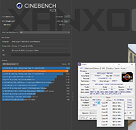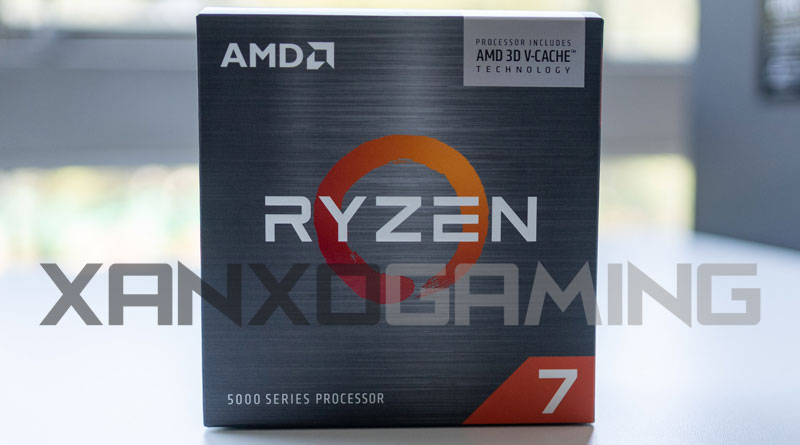TheLostSwede
News Editor
- Joined
- Nov 11, 2004
- Messages
- 18,643 (2.48/day)
- Location
- Sweden
| System Name | Overlord Mk MLI |
|---|---|
| Processor | AMD Ryzen 7 7800X3D |
| Motherboard | Gigabyte X670E Aorus Master |
| Cooling | Noctua NH-D15 SE with offsets |
| Memory | 32GB Team T-Create Expert DDR5 6000 MHz @ CL30-34-34-68 |
| Video Card(s) | Gainward GeForce RTX 4080 Phantom GS |
| Storage | 1TB Solidigm P44 Pro, 2 TB Corsair MP600 Pro, 2TB Kingston KC3000 |
| Display(s) | Acer XV272K LVbmiipruzx 4K@160Hz |
| Case | Fractal Design Torrent Compact |
| Audio Device(s) | Corsair Virtuoso SE |
| Power Supply | be quiet! Pure Power 12 M 850 W |
| Mouse | Logitech G502 Lightspeed |
| Keyboard | Corsair K70 Max |
| Software | Windows 10 Pro |
| Benchmark Scores | https://valid.x86.fr/yfsd9w |
An early retail unit of AMD's upcoming Ryzen 7 5800X3D has made its way to a Peruvian site called XanxoGamging, who put it through its paces in a few benchmarks, of which none so far are game related. The tests run on the upcoming CPU suggests that it's about as fast as a Ryzen 7 5700X in most single and multi-core tests. This should largely be down to the slower clock speeds of the Ryzen 7 5800X3D, which holds it back in these benchmarks compared to the older Ryzen 7 5800X.
However, it seems like some benchmarks can take advantage of the extra cache and the Ryzen 7 5800X3D is outperforming the 5800X in Blender, by a small margin. That said, the Cinebench R23 results are not overly impressive, neither are the CPU-Z or Geekbench 5 numbers. None of this is really unexpected though, especially as AMD has specifically mentioned that the 3D V-Cache doesn't bring additional performance to most software. XanxoGaming has promised more benchmarks and game tests tomorrow, but mentions that it feels strange losing performance in normal software due to the lower clocks, but that they hope the performance can be improved over time by an improved UEFI/AGESA.


View at TechPowerUp Main Site | Source
However, it seems like some benchmarks can take advantage of the extra cache and the Ryzen 7 5800X3D is outperforming the 5800X in Blender, by a small margin. That said, the Cinebench R23 results are not overly impressive, neither are the CPU-Z or Geekbench 5 numbers. None of this is really unexpected though, especially as AMD has specifically mentioned that the 3D V-Cache doesn't bring additional performance to most software. XanxoGaming has promised more benchmarks and game tests tomorrow, but mentions that it feels strange losing performance in normal software due to the lower clocks, but that they hope the performance can be improved over time by an improved UEFI/AGESA.


View at TechPowerUp Main Site | Source





